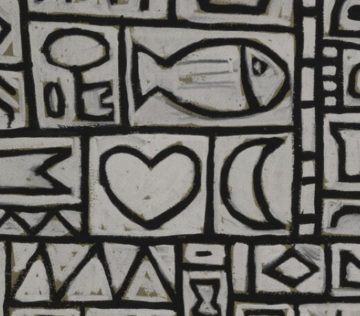Matt Dinan in The Hedgehog Review:
 Teaching Augustine’s Confessions for the last five years or so, I’ve come to expect certain questions and objections: Isn’t he awfully hard on babies? (No.) Is it really a bad thing to cry when your mother dies? (Maybe not.) Was he really such a terrible sinner? (Who am I to judge?) But I was recently caught off guard when one of my students expressed uneasiness not with Augustine’s classical Christianity or his stringent understanding of morality but with his objections to the Roman practice of consulting astrologers. This student, it turned out, was one of many young people participating in what the New York Times somewhat antiseptically calls the “$2.1 billion mystic services market,” a market which, as one astrology app’s self-description puts it, “allows irrationality to invade our techno-rationalist ways of living.” In a follow-up conversation, my student suggested that his interest in astrology was “mostly ironic”—an observation in line with the wry tone adopted in many of the new online horoscopes.
Teaching Augustine’s Confessions for the last five years or so, I’ve come to expect certain questions and objections: Isn’t he awfully hard on babies? (No.) Is it really a bad thing to cry when your mother dies? (Maybe not.) Was he really such a terrible sinner? (Who am I to judge?) But I was recently caught off guard when one of my students expressed uneasiness not with Augustine’s classical Christianity or his stringent understanding of morality but with his objections to the Roman practice of consulting astrologers. This student, it turned out, was one of many young people participating in what the New York Times somewhat antiseptically calls the “$2.1 billion mystic services market,” a market which, as one astrology app’s self-description puts it, “allows irrationality to invade our techno-rationalist ways of living.” In a follow-up conversation, my student suggested that his interest in astrology was “mostly ironic”—an observation in line with the wry tone adopted in many of the new online horoscopes.
What does it mean to like something “ironically”? To be sure, irony is often a form of negation that lets us hold ourselves separate from and above the world. To like something, but only ironically, is like being in on a joke you play on yourself. As David Foster Wallace famously put it, irony is an “existential poker face,” an attempt to “interdict the question without attending to its content.” Lately, however, I’ve been wondering whether our culture’s pervasively ironic bearing, readily observable in the myriad ways in which we relate to one another and our culture online, is really fooling anyone. My student maintained a certain plausible deniability about astrology but nevertheless felt compelled to defend it from Augustine’s critique. Online irony, moreover, has a troubling way of seeping into the way we conduct our lives, often with insidious results.
More here.
